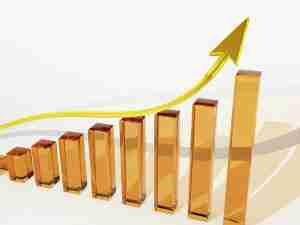Redha Hamiani, president of the Business Leaders Forum, said the informal sector, long tolerated by the state as a safety valve for youth unemployment, now had a sizeable hold on the weak non-energy sector of the north African country's economy.
"The informal sector poses a lot of danger," Hamiani, a former government minister, told Reuters in an interview.
"If there isn't a serious revival of investment and growth with a foreign contribution, we risk sinking not only into the informal sector but also into Islamism," he added, referring to an ideology that advocates an Islamic state.
"If one leaves the national economy to evolve without the contribution of foreign investors and without state regulation the result is a bazaar economy."
The big country on the southern shores of the Mediterranean is gradually recovering from 15 years of often brutal conflict between Islamist rebel groups and government forces.
The Islamist revolt has largely been quelled and Islamist groups are on the defensive politically, but they have emerged as important economic players through their black market role.
The National Economic and Social Council think tank estimates the parallel market in OPEC-member Algeria is worth 32 to 38% of non-oil gross domestic product.
The state-owned Council estimates 700 informal street markets emerged in the politically turbulent 1990s, selling everything from counterfeit car spare parts to gold.
HOSTILITY
Many are controlled by Islamists, and Hamiani said they now constituted a network of influence outside state control.
"The informal sector is the translation in economic terms of hostility to the government ... not to obey the rules, the law, not pay taxes and not present bills.
"Networks of vested interests became established, and today the big actors of the informal sector are Islamic leaders."
Hamiani, whose forum groups 120 business leaders including bankers who employ a total of 128,000 Algerians, estimated 40% of money in circulation is outside the banking system. Officials have tolerated the black market's growth, conscious of the need to create wealth and jobs in order to shore up political stability. The unemployment rate among adults under 30 is more than 70%, according to official figures.
Hamiani said this tolerance had "a high price".
"The informal sector started with suitcases. Now it's containers -- and also a state of mind."
"This state of mind has brought lots of connections. Before, we had petty corruption but it was manageable and marginal. But with the informal sector, corruption has grown. What is serious today is that the informal sector has a hold on the economy."
Hamiani said quality foreign investment and firmer state regulation would counter the black market's growth.
"Quality investment can be made only by foreigners because the key thing they bring is technology and know-how," he said, adding multinational investors' compliance with business standards would rub off on local firms and boost performance.
Better state regulation was also vital, he said, complaining the antiquated Soviet-style bureaucracy hindered business. (Reuters)








